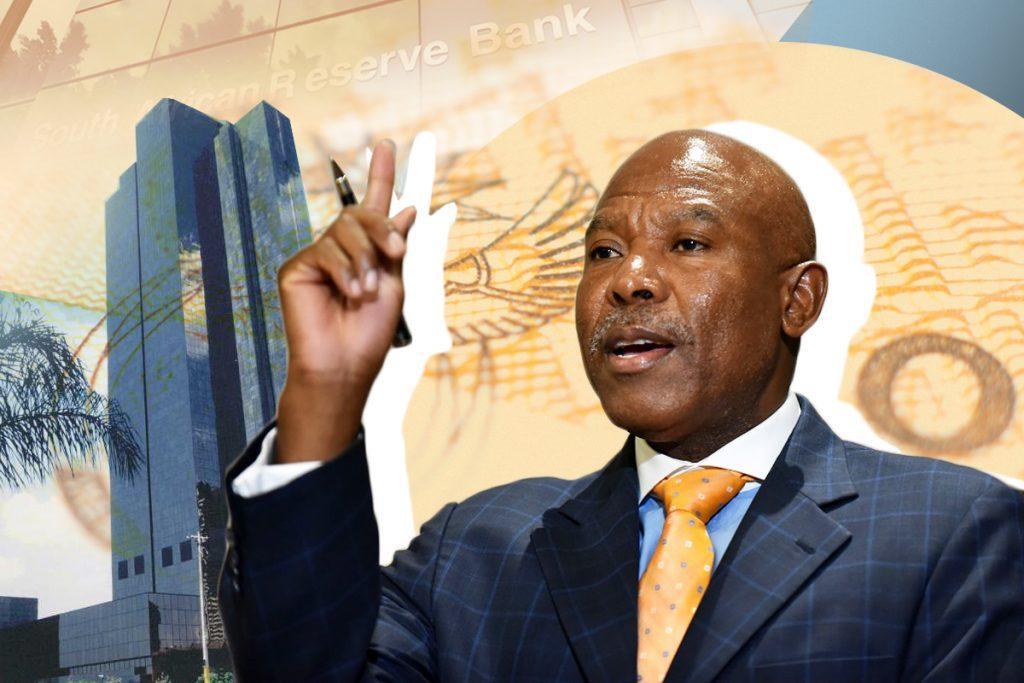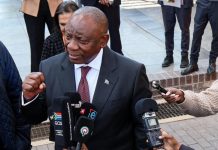Africa-Press – South-Africa. The South African Reserve Bank is expected to cut interest rates at least one more time this year, but economists are divided on when the cut will occur.
The scales are currently tipped toward the SARB’s six-person Monetary Policy Committee (MPC) announcing a hold on Thursday (31 July), though there is a chance for a 25bp cut.
Economists at FNB and Investec believe that uncertainty around the impending Trump tariffs will drive a more cautious approach by the central bank and likely lead to a hold, with the rate cut pushed out to September.
Other views from Nedbank and Bank of America say the current data do not show underlying price pressures, and with inflation running low, the MPC is primed to cut.
The MPC’s decision will be made against the backdrop of an uncertain global economy, with 30% tariffs on South African exports to the US set to start on 1 August.
The tariffs are part of the Trump administration’s “Liberation Day” measures announced in April 2025, which have caused great anxiety and uncertainty in global markets and trade.
Despite local inflation remaining at the lower end of the 3% to 6% range—and consistently below the SARB’s 4.5% target—the tariff uncertainty has put forecasters on edge.
Given the resultant volatility, the MPC’s July meeting is expected to be a tight vote.
The committee has already cut rates by 100 basis points this cycle: twice this year (25bp in January and May), following two 25bp cuts at the tail-end of 2024.
Earlier votes had been split between a small cut and hold, while May’s vote was between a 25bp cut and a 50bp cut, reflecting the consistently low inflation levels.
However, the MPC voted to hold rates in March as global volatility rose and local politics around the 2025 Budget continued to weigh on stability.
This showed that global market shifts and wider uncertainty impact monetary policy, and July/August represents another crucial shift.
South Africa has a high inflation target and a higher risk premium during periods of volatility. The MPC has historically erred on the side of caution during these times, leading to a slow cutting cycle.
Because the MPC’s decisions are heavily data-dependent, and volatile markets bring volatile data, some economists are pencilling in a hold on rates this week, while others see a cut.
Group31 July PredictionFNBHoldInvestecHoldNedbank25bp cutBank of America25bp cut
FNB
FNB said there is a case for a July cut, believing that inflation should remain constrained around the 4.5% midpoint of the target range despite the increase in food prices.
Weak oil prices and a slow recovery in economic activity should also arrest the rise in inflation.
FNB’s economists also noted that the dollar’s weakness and terms of trade gains from higher precious metal prices have so far supported a resilient rand.
“This would countervail the MPC’s fears surrounding global dynamics, choosing instead to support a benign local environment,” it said.
However, FNB also provided the case for a September cut.
It said the contentious global trade environment could weaken sentiment, lift borrowing costs and weaken the rand.
This would make the MPC cautious. In the May meeting, the MPC noted that US tariffs would limit growth and weaken the rand, pushing inflation higher.
“We do not believe that the impact on inflation is that obvious, given that weak economic activity could dampen cost and exchange rate pass-through,” said FNB.
Cheaper imports from the East will likely contain inflation in South African consumer goods, including vehicles.
“Therefore, we don’t expect a complete pivot in the interest rate cycle, but monetary policy would certainly be more cautious.”
“Ultimately, we think the MPC will keep rates unchanged at the July meeting, but we would not be surprised if it opted for an earlier move.”
Investec
Investec’s economists have shared a similar sentiment with those at FNB, believing that one more 25-basis-point interest rate cut will occur this year and could come as early as this week, but likely not.
Investec said that the US Federal Reserve may remain cautious, as it has not changed its interest rate stance this year, while the SARB has not cut at every meeting.
Moves by the Federal Reserve significantly impact South Africa, as relatively high rates in the US can draw capital to the country, weakening the rand, and vice versa.
Investec’s economists said the SARB could remain cautious this week and hold steady despite weak demand and inflation.
The UK and South Africa-focused bank added that the question marks over the US tariffs could severely impact the economy.
South Africa is a very minor US trade partner, but Minister of Trade, Industry and Competition Parks Tau said that a pre-trade deal with the US is in the works, but contingent on unspecified requirements.
“While SA can have an interest cut at each remaining MPC meeting this year on inflation expectation of 4.0% over the forecast period, the SARB is likely to be cautious on the uncertainty around tariffs.”
Nedbank and BofA
Contrary to the more cautious views of FNB and Investec, Nedbank’s economists believe the MPC will cut rates by 25 basis points this week.
This is because “inflation remains tame, the risks to the outlook are relatively balanced, and demand pressure on prices is timid at best”.
Although inflation inched up in June, the bank said there is no evidence of mounting underlying price pressures, with headline and core inflation well below the 4.5% target.
“Although food prices pose upside risks to the inflation outlook, global oil prices have relapsed to below $70 a barrel, the domestic economy remains sluggish, and the rand has held relatively firm,” it said.
This is despite the threat of a 30% universal tariff on South Africa’s exports to the US come 1 August.
“Although we see inflation rising in the months ahead, we do not expect a significant breach of the 4.5% target,” it said.
“With monetary policy still quite restrictive and the cloud of US tariffs hanging over the economy, we believe there is justification for further easing.”
This view was suppored by economists at Bank of America, who predict a 25 basis point cut, followed by a pause for the rest of the year.
BofA said that inflation likely bottomed out in May at 2.8% and will continue to rise to around 4.4% by the year’s final quarter, driven by year-on-year fuel deflation.
The bank has been more bullish on rate cuts than other banks, but it said that multiple cuts from July are unlikely as it is constrained by a narrowing differential with the US Fed, which remains on hold.
For More News And Analysis About South-Africa Follow Africa-Press






